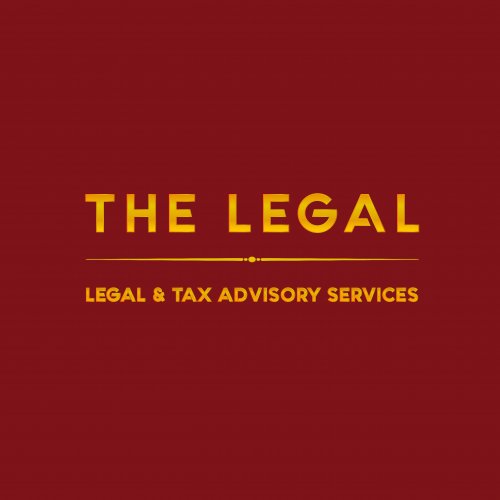Best E-commerce & Internet Law Lawyers in Bangkok
Share your needs with us, get contacted by law firms.
Free. Takes 2 min.
List of the best lawyers in Bangkok, Thailand
Legal guides written by Smart Legal Solutions:
- Main Legal Measures to Protect Foreign Investment in Thailand
- The importance of the geographical indications for the Thai economy
Legal guides written by Mahanakorn Partners Group Co., Ltd:
- Thailand Strengthens Anti-Money Laundering Laws with New Amendments
- Recent Updates to Thailand’s Long-Term Resident (LTR) Visa and SMART Visa Programs
- Managing Risks in Public-Private Partnership Projects
About E-commerce & Internet Law in Bangkok, Thailand
E-commerce and Internet Law in Bangkok, Thailand is a dynamic and rapidly evolving field of legal practice. With the increasing reliance on digital platforms for commerce, communication, and entertainment, understanding the legal frameworks that govern these areas is crucial. This field encompasses laws related to online transactions, data protection, cybercrime, intellectual property rights, and digital contracts. The Thai government continues to update regulations to address new challenges and opportunities associated with technological advancements, making it essential for businesses and individuals engaged in e-commerce to stay informed and compliant.
Why You May Need a Lawyer
The need for legal assistance in E-commerce and Internet Law can arise in many scenarios, such as:
- Advising on compliance with data protection laws, especially in relation to the Personal Data Protection Act (PDPA).
- Drafting and reviewing online contracts or terms of service to ensure they protect the business's interests and comply with applicable laws.
- Handling disputes related to online sales, including issues of non-delivery or product misrepresentation.
- Protecting intellectual property rights online, including trademarks, copyrights, and patents.
- Navigating the complex legal landscape of digital payment systems and ensuring compliance with financial regulations.
- Managing any incidents of cybercrime, such as data breaches or hacking attempts.
Local Laws Overview
In Bangkok, Thailand, key legal aspects relevant to E-commerce & Internet include:
- Personal Data Protection Act (PDPA): This legislation governs how personal data is collected, used, and protected.
- Computer Crimes Act: Addresses offenses such as hacking, online fraud, and data theft.
- Electronic Transactions Act: Provides a legal framework for digital contracts and electronic signatures, ensuring their validity and enforceability.
- Intellectual Property Laws: Encompass trademarks, patents, and copyrights, offering protection from online infringements.
- Consumer Protection Act: Ensures that consumers are safeguarded against misleading advertisements or defective products in the online space.
Frequently Asked Questions
1. What is the Personal Data Protection Act (PDPA)?
The PDPA is a law designed to protect personal data collected from individuals, ensuring their information is handled with consent and used lawfully.
2. Do I need to register my e-commerce business in Thailand?
Yes, you must register your business with the Department of Business Development and obtain all necessary permits to operate legally.
3. Are electronic signatures legally binding in Thailand?
Yes, under the Electronic Transactions Act, electronic signatures are recognized as legally binding, provided they meet certain requirements.
4. How can I protect my website content in Thailand?
You can protect your website content under Thailand’s Copyright Act by registering for copyright protection.
5. What actions can be taken against cybercrime in Thailand?
Offenders can be prosecuted under the Computer Crimes Act, which criminalizes hacking, identity theft, and other cybercrimes.
6. Are there any specific requirements for online advertising?
Online advertisements must comply with the Consumer Protection Act, ensuring they are truthful and not misleading.
7. What is the process for handling a data breach?
You should notify the affected individuals and the relevant authorities as mandated by the PDPA and take measures to mitigate further risks.
8. Can I sell cross-border online from Thailand?
Yes, but you must adhere to international trade regulations and any specific rules regarding international e-commerce.
9. Are there laws regulating digital payments?
Digital payment systems are regulated by the Bank of Thailand, which governs financial transactions to ensure security and compliance.
10. What should I do if my intellectual property rights are infringed online?
You can file a complaint with the Department of Intellectual Property and take legal action against the infringing party.
Additional Resources
Consider reaching out to the following organizations and resources for further assistance:
- The Thai Electronic Transactions Development Agency (ETDA) for guidelines on conducting online businesses.
- The Department of Business Development for information on business registration and compliance.
- The Department of Intellectual Property for guidance on protecting intellectual property online.
- The Office of the Personal Data Protection Commission for insights on data protection laws.
Next Steps
If you need legal assistance in E-commerce & Internet Law, consider taking the following steps:
- Identify the specific legal issues you are facing and gather relevant documentation.
- Research and consult with legal professionals who specialize in E-commerce & Internet Law in Bangkok.
- Schedule a consultation to discuss your case and receive tailored legal advice.
- Ensure you understand the legal options available to you and the potential outcomes.
- Consider engaging a lawyer to represent your interests and guide you through any legal proceedings.
Lawzana helps you find the best lawyers and law firms in Bangkok through a curated and pre-screened list of qualified legal professionals. Our platform offers rankings and detailed profiles of attorneys and law firms, allowing you to compare based on practice areas, including E-commerce & Internet Law, experience, and client feedback.
Each profile includes a description of the firm's areas of practice, client reviews, team members and partners, year of establishment, spoken languages, office locations, contact information, social media presence, and any published articles or resources. Most firms on our platform speak English and are experienced in both local and international legal matters.
Get a quote from top-rated law firms in Bangkok, Thailand — quickly, securely, and without unnecessary hassle.
Disclaimer:
The information provided on this page is for general informational purposes only and does not constitute legal advice. While we strive to ensure the accuracy and relevance of the content, legal information may change over time, and interpretations of the law can vary. You should always consult with a qualified legal professional for advice specific to your situation.
We disclaim all liability for actions taken or not taken based on the content of this page. If you believe any information is incorrect or outdated, please contact us, and we will review and update it where appropriate.

















